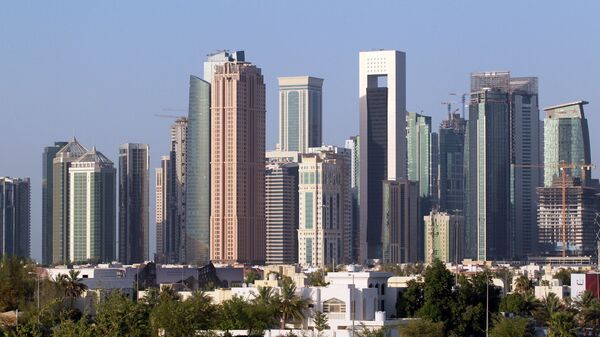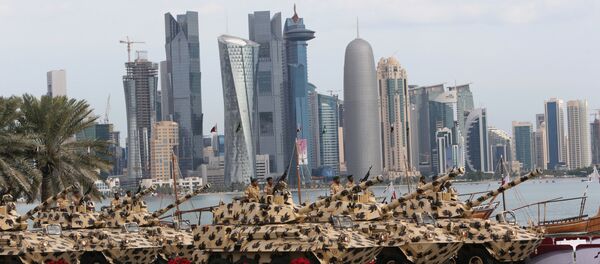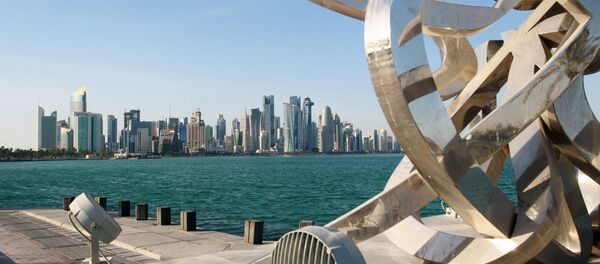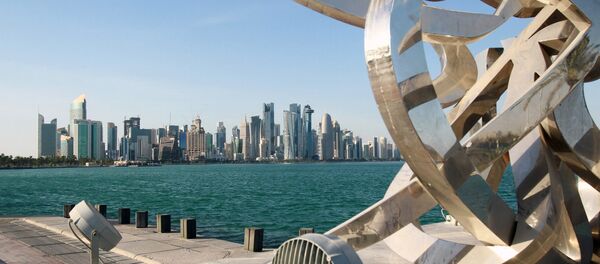Riyadh and its allies have also imposed an economic blockade on Qatar and called on Doha to stop supporting extremists.
Macron spoke separately with Qatari leader Emir Emir Sheikh Tamim bin Hamad Al-Thani, Saudi King Salman and Iranian President Hassan Rouhani, inviting them to "pursue dialogue."
The French president assured the leaders of France’s wish to "maintain stability in the region" and to continue up the "fight against terrorism and the financing of terrorist movements."
Earlier, Macron also spoke to Turkish President Recep Tayyip Erdogan and Abu Dhabi Crown Prince Mohammed bin Zayed Al-Nahyan.
An official at the president’s office said that Macron will continue his mediation efforts on the Gulf crisis in the coming days, RFI reported.
Sputnik France sat down with Pierre Conesa, a political analyst and former senior official at the French Defense Ministry, to discuss efforts France could take to help resolve the crisis.
"We should call it like it is. This is about a mediatory mission, aimed at bringing France’s partners involved in the crisis back to peace. It is crucial to prevent escalation," Conesa said.
France has economic and military ties with a number of Gulf powers, including Saudi Arabia, Qatar, Egypt and the UAE. Hence Paris is capable of influencing the situation in a more efficient way than other countries, including the United States.
"France has good relations with its partners in the region, including on the level of defense ministries. France’s involvement [in the crisis settlement] could be more visible and efficient than that, for example, of the US," he suggested.
Conesa noted that US President Donald Trump and his team has a single-minded focus on Saudi Arabia.
"Since Trump visited Riyadh, the Americans have clearly been pro-Saudi. They even regard the Saudis as their allies in the fight against terrorism. This is a paradox in the style of Trump. By contrast, France sees Qatar as a long-time partner. Paris’ stance on the crisis is more balanced and moderate than that of Washington," the expert pointed out.
"France will not side with any party of the conflict. For us, the most important thing is to maintain contacts with each of the conflicting sides," he said.
On Wednesday, French government spokesman Christophe Castaner said: "Qatar must be completely transparent and answer precisely the questions that have been asked notably by its neighbors. That's what France is asking for. […] It's not about taking sides. We are a country that is friends with these states and with which our cooperation is historic and deep, so we call on all parties to reconnect and to achieve that the questions have to be answered."
Commenting on the statement, Conesa noted that it indicates that France is giving some credibility to the allegations against Qatar, including on funding terrorism, but Paris wants the situation to be clarified.
"As for anti-Qatar claims, similar allegations could be made against other countries, first of all against Saudi Arabia. But it is much easier to criticize Qatar than Saudi Arabia," the expert concluded.




